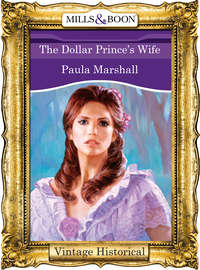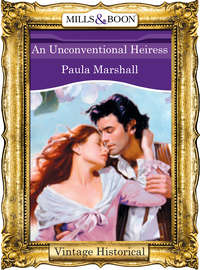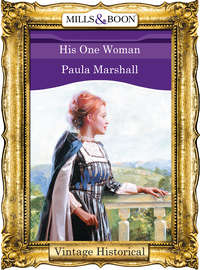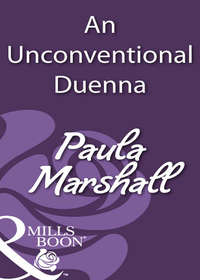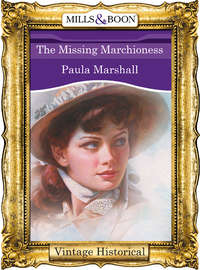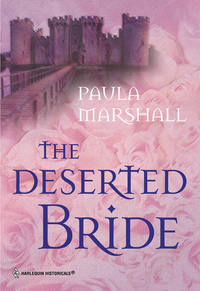
Полная версия
The Astrologer's Daughter
He was gone. Quicksilver in mind and body, a man whom few would trust, but old hardships shared bound him and Kit together. Had he told his friend the truth it would have been that he wished to see her again and soon, if only to find that his memory of her was false—that she was but another woman, after all.
Chapter Three
‘I would have had thee wed Robert Renwick, but since you will not, then you will not. I will only ask you to consider such a marriage carefully, for he tells me that he is of a mind to ask you again. You trouble me greatly, daughter, for by the nature of things you must shortly lose me and, in so doing, lose thy protector. More, I am not sure that I ought to take thee to Whitehall this day, but the Duke so commanded and I dare not disobey. He would be a powerful patron. They say that the King is powerfully interested in astrology and, were we to see him, who knows what might happen? The stars foretold a change of fortune for me, but they did not say what shape it will take. They are capricious, as you know.’
Celia and her father were collecting their parchments and papers to take to Whitehall, the Duke’s commissions having been fulfilled. Willem would accompany them to carry them and other necessities, for Adam was hopeful that their visit to Whitehall might be productive of more than thanks and a few guineas. This was his great opportunity to woo and win the mighty. Why, he might even see the King’s Majesty himself.
He was unaware that Charles had already arranged with an amused Buckingham to be present at some point during the Antiquises’ visit—in order to see the astrologer’s daughter, not the astrologer.
Celia saw the last parchment stowed away then said softly, ‘I have little mind to go to Whitehall, Father. The courts of kings, I have read, are easily entered but not so easily left. The stars say that my fortune will change, too, but do not say whether for better or for worse. I want no change. I am happy as I am.’
Adam smiled, then frowned. ‘Oh, child such a statement tempts the gods. When mortals say they are happy, they throw the dice to challenge that happiness. But, come, the wherry awaits us.’
They walked by Essex House, Willem following, down to the Temple Stairs where a wherry had been commissioned and was waiting to take them to Whitehall Palace. The river was the easiest mode of transport in London and was busier than any street. The Thames was both a port and a highway.
Celia had dressed herself carefully in a gown of middling blue. She wore a deep lace collar, but the neckline of her gown was modest and the pin at the throat of it was modest, too. Her shoes were her best and she had dressed her hair a little more loosely than was her wont. She had not put in curl-papers to create the elaborate ringlets of the court ladies and was sure that she would look sadly out of fashion.
What she did not know was that the pure lines of her face, head and neck needed no ringlets. Classic simplicity had its own beauty which owed nothing to artifice.
‘Speak when spoken to,’ groused Adam gently. ‘That was what Master Renwick said. They told him that before he went to Court when the King commissioned a loving cup from him, which, by the by, he hath not paid for. Will the Duke pay for his elections, I wonder, or will he follow his master’s example? Yet, to have the King one’s patron would be a fine thing, money or no. It hath brought Master Renwick many commissions, just to say that the King is pleased to employ him.’
Celia made no answer. She remained quiet as the wherry moved on its way to Whitehall. She was busy taking mental note of all that happened to her. She had seen the palace from the outside, marvelled at its size, at the coming and going of servants, courtiers and officials. Whitehall was the seat of Government as well as the King’s home. Parliament might have tamed the monarch a little but, since his restoration in 1660, they worked in tandem—each side now up, now down.
She had never thought to find herself in it. A servant of the Duke’s had been waiting for them at the top of the Privy Steps which led from the river. My lord expected them, he said. It was good that they had come betimes: he did not care to be kept waiting. A footman was there, who took Willem’s burdens from him, and they set off in procession.
Willem was left at a small lodge, to be given ale by some functionary. There were so many servants and lackeys about that Celia wondered how she and Adam managed to live without them. They walked along a small paved road, through an archway into a large garden, a sundial in its middle. They had thought that they were to be taken to the Duke’s apartments but, in reply to a question from Adam, it seemed not. They were to go to one of the state rooms, facing the garden, where the Duke had taken himself and his own small court—for there were courts within courts, Celia was to find.
Finally they went through double doors, held open by more lackeys, into a large long room with many windows—some from floor to ceiling, others with seats in them. There were glass doors opening on to yet another garden. The room was full of people, but contained little in the way of furnishings. The Duke was seated in a great chair facing the glass doors. Richly dressed women stood about, sat on cushions scattered about the polished floor or reclined on long settles. Some men and women were in the window seats; all their eyes turned on Celia and her father as they entered.
The Duke, on seeing them, rose, and conducted Adam to a high-backed armless chair placed a little to the right of his. Behind it Celia suddenly saw Sir Kit. He was seated on a long low stool of the type which stood before a fire. His guitar was on his knee. He was talking to a richly dressed woman who sat beside him. She was so superb, so proud and haughty, that Celia knew at once that she was a grand personage.
She caught sight of Celia following Adam, watched while the Duke demanded a stool be placed for her at her father’s knee, then put a long finger on to Kit’s chin and laughed into his eyes. There was something so secretive, so confidential about her action that it was plain that he and she shared a friendship or, perhaps even something more. Celia felt a strange pang at the sight of it. Which was foolish, for what was Kit Carlyon to her but the Duke’s friend? He was not hers.
And all the time the Duke was speaking. His voice, as beautiful in its own way as Kit’s, went up and down. She must pay attention, for the elections and horaries had been as much her work as Adam’s and at any moment he might call on her for her support.
The Duke held the parchments which they had prepared in his long-fingered hands, studded about with rings today. He was superbly dressed as though to emphasise to them that the man who had eaten in their parlour was also a man of great affairs.
‘So, Mistress Celia,’ he said, turning to her. ‘Your father hath told me that you had a great hand in preparing these.’ He handed the parchments to her. ‘You might confirm his faith in you by expounding to me how I am to interpret them.’
‘Why, Your Grace,’ replied Celia, trying to hide how nervous she was to be so addressed before so many powerful people, ‘it depends on whether thy question is an horary or an election, for the principles determining them are subtly different. Thy first question, as to when the time will be propitious for you to make a journey out of London, is an election and, therefore, looks to the best moment in the future to make thy journey—that is, the one when the moon and planets are most propitious. And here—’ and she pointed to the horoscope ‘—is the day upon which my father advises you to leave, which you will see is in early July.
‘But this—’ and she lifted one of the parchments to display it to the Duke who now leaned forward, chin in hand, elbow on knee, to hear all that she had to say ‘—this one is an horary, because it asketh not of the future but is dependent on the present, and therefore the horoscope which determines the answer is drawn up showing the signs at the moment when the question was asked.’
The Duke put up his hand, laughing a little. ‘Good mistress, I doubt me not as to your learning and, as to the use I shall make of it, why that I must ponder. You are a miracle of nature, madam, a lusus naturae, as the Ancients had it. Sir—’ And he turned to Adam who sat beaming at his daughter, lost in delight that his visit to the court was proving so propitious. And why, Adam thought, should that surprise me, or did not the stars tell me that great things would flow from it?
‘Sir, you will continue where thy daughter hath finished. I would not have her overborne by her learning. Kit—’ he turned towards his friend who was now tuning his guitar, head bent over it ‘—Kit, my friend, you will give the fair Mistress Antiquis a turn about the room while I speak further with her father.’
Kit, who had been supremely aware of Celia ever since she had walked into the room, rose, put down his guitar and walked over to where she sat, bowed and offered her his hand. She took it, felt its warmth and its strength. If he had been aware of her, then she had been as aware of him. More—as they touched, some message seemed to pass between them, for first her hand thrilled and then her arm, and finally her whole body. For a moment she was fearful that the trance was on her, but she could control it when warned of its coming, which she did, to hear him reply to Buckingham.
‘Willingly, George, willingly. I would discourse again with the lady on matters philosophical.’ And if there were a few who smirked behind their hands at the notion of Kit Carlyon discussing philosophy with a fair maid, neither Celia nor her father saw them, both being too dazzled by the welcome which they had received.
The welcome grew more remarkable yet. Hardly had Kit taken Celia’s hand in his to place it on his sleeve, the tawny velvet of which matched the curling locks which fell about his shoulders, than the glass doors were opened and a party of courtiers entered, led by a man whom Celia recognised at once as the King.
She had seen him in the city streets—sometimes walking with the Lord Mayor at his side, sometimes on horseback and once in the Royal coach. She could not be mistaken and, near to, she found that his height and presence made him even more remarkable. Only Kit Carlyon rivalled him as to height; none rivalled his regality. Many bowed at his entrance, and Celia curtsied. The King waved a hand for them to rise.
‘Nothing to that,’ he declared imperiously. ‘I prefer my subjects on their feet, looking at me, not on their knees, looking at the floor.’ He examined Celia closely, so that she blushed, and said, ‘Kit, my friend, thou hast a fair maid on thine arm. Pray introduce her to us. I would not have a fair face pass me by.’
Kit bowed, but not low, Celia saw, and replied, ‘Sire, this is Mistress Antiquis, who is the daughter and assistant of one Adam Antiquis, an astrologer who hath come to Court today to bring George Buckingham some horaries and elections which he hath caused to be cast.’
‘The astrologer’s daughter and his assistant! That is a rare thing. I must tell my Queen of this. Charles,’ he commanded to a pleasant-faced young man who stood by him, ‘run, tell my wife I have a rare thing for her to know of and I would have her by me when she is made aware of it.’
Sir Charles Sedley bowed in his turn and made for the glass doors to carry out his master’s bidding. The King’s attention was now on Adam and the Duke whom he commanded to present Celia’s father to him. At last, after some fair words to the even more bedazzled Adam, he said, ‘And you made thy daughter thy assistant, Master Antiquis. Pray why, if a mere monarch may enquire?’
‘Why, Your Majesty, as to that—’ Adam almost babbled, his usual stern composure almost melted by the rays of the imperial sun before him ‘—I had no son and an apprentice whom I took proving unwilling and slow, and she showing a turn for the mathematics and philosophy most unusual in a woman—and one so young as she then was—I thought to train her, almost in jest at first. Now the young pupil hath come close to equalling the master, as you may see by examining the work which she hath done for the Duke’s grace.’
Bedazzled he might well be at such attention, thought Celia, watching him, for the King had kept light hold of Kit’s arm as he spoke and her promised walk had been halted.
‘A prodigy, then,’ drawled the King, his dark eyes full on Celia, ‘and a prodigy to be rewarded. No, no,’ he said, waving away the parchments which Adam profferred him as proof of Celia’s excellence. ‘I take thy word, man. What, would thou deceive thy King? I think not; thy stars would tell thee otherwise!’
Everyone around them laughed at the King’s small joke. Celia was fast recovering her wits and was already observing that the courtiers hung on their master’s every word, rewarding him as frequently as they could for every imagined witticism or piece of wisdom offered. Only Sir Kit, at her side, refrained from doing so, even as he spoke to the Duke on terms of equality when she had already noticed that many splendid figures had been servile to him. Sir Kit was his own man, she concluded, and that pleased her. Why it did, she knew not.
Further talk was ended by the Queen’s entrance, surrounded by her maids of honour, each one of whom outshone her in comeliness. The queen was not plain, but neither was she beautiful, and she appeared drab by comparison with them all—particularly the beauty who had been caressing Kit.
‘My heart,’ exclaimed the King, advancing on her to take her by the hand to lead her to where Celia and Adam were standing. ‘Here is one Master Antiquis, an astrologer, and if you should ask why I command you to take particular note of him, it is because of his wondrous fair daughter, who stands by Kit, here. She is his assistant, he saith, and is as learned as he. Now, you were lamenting yester eve that you had none to advise you when you needed advice, and, seeing this fair maiden so learned and so young, it seemed to me that it might be fitting for you to have an adviser, here at Court. And what better than a female astrologer to cast thy horaries and elections?’
The Queen smiled kindly at Celia. ‘My lord,’ she said in her lightly accented voice—her native country was Portugal, ‘a kind thought. I welcome it. But what of her father? Does Master Antiquis wish to lose his assistant?’
To be the Queen’s astrologer! To be at Court! So much was happening to her, so fast. The trembling hand on Kit’s sleeve was the only outward evidence of Celia’s inward agitation. Did she really want this thing? To be part of a court notorious for its lack of morals? How would she, a humble citizen’s daughter, fare in such a place? Could she even learn to conduct herself properly? And what was proper here?
Yet a further thought struck her as the Queen spoke kindly to her father, and it made her hand tremble even more. If she came to Court, why then, why then, she would meet him, the man standing beside her, who, when he felt her hand quiver, had put his own large and strong one over it briefly, to reassure her. What a fine thing it would be to meet him every day to hear him singing in that voice which might draw the heart from one’s breast, as it had drawn hers when he had visited them!
The hand which had briefly comforted hers—and how had he known that she might need comfort?—had had the same effect on her as it had had earlier. This time she could not stop the trance from consuming her. King and Court disappeared. She was in the dark, on her knees, staring at her hand in the dim light of a lantern. There was blood on it.
The vision was gone but Kit had felt her stiffen, had bent his head to look at her, and for a moment saw again the blind eyes she had turned on him in her own parlour. If it were a trick it was an odd one, for she drew no one’s attention to it.
‘Mistress Celia,’ he said quietly, so that none but she might hear his words. ‘Be not affrighted. The King means you no harm. Indeed, he seeks to do thee honour.’
‘My father may not wish…’ Celia began falteringly.
Kit’s smile was humourless. ‘Why, as to that, he will not decline such an honour for you, I am sure. He does but seek to discover on what terms the honour is made.’
‘He should ask me first whether I wish to accept such an honour.’
Kit’s lips twitched. Such an independent maiden for all her gentle quietude. Most would have curtsied and said modestly, As my father wills. But not the astrologer’s daughter.
‘You do not want the honour, mistress?’
‘I am a little afeared of it, Sir Christopher.’
‘Nay fear not. None will hurt thee. I will see to that.’ And his hand covered hers again.
The King and Queen had finished their speech with Adam. ‘Bring the lady to us,’ Charles ordered and, when Kit had complied, the King said to Celia, ‘Good Mistress Celia, thy father hath agreed that when the court is in London you should take lodgings here in Whitehall with us, to advise the Queen on matters astrological. When the court moves to the country thou shalt return to thy father’s house, for he would not lose thee altogether, nor would I reft you from him. The Queen must manage as best she can, but country matters will not be so pressing as to demand thy services. Is not that so, madam?’
The Queen agreed with him, said in her gentle voice, ‘Now, as to thy recompense, mistress, and thy lodgings, that shall be determined before you come to us, and thy father hath agreed a week’s term for you to prepare yourself before you take up thy new position. This pleases you?’
She could not say nay to any of them, even if they had all determined matters without her. That did not please her, but she could not say so. She knew quite clearly, without the stars’ help, that she would be happy to come to Court even if only to see Sir Kit again, to have his beautiful green eyes on her, perhaps to have his sensitive musician’s hand cover hers again.
Celia made a great curtsy to them both and gave her assent. She had loosed her hand from Kit’s arm so that he stood back.
The King would have none of that. ‘Why, all’s settled, then, and Kit, do not retire. I would have thee sing for us. Mistress Celia shall hear you, and learn that to work in the court of the King has its rewards as well as its pains.’
And so it was done. She was to go to Court, and her even life set in its pleasant quiet ways, would be no more. Time and chance had worked its will on her and Adam’s horoscope, which had told of momentous things coming from this visit, had been a true one.
Listening to Kit sing, watching the King’s face, sad amid the trappings of his office, she only knew one thing—that Celia Antiquis might be lodged in a strange place, but she would be plain Celia Antiquis still. None would cozen her, nor cheat her; she would hold true to the stars which governed her, even if the skies fell about her, as the old Latin saying had it.
Buckingham watched her as she listened to Kit sing his new song, for the King had demanded it again. Celia had not heard it and the words made her sad. A film of tears misted her eyes for the man who could both write and sing it. What unhappy experiences had brought him to this pass? Buckingham saw the tears and wondered. He leaned forward from his high chair to touch Celia’s shoulder, for Kit had handed her to her stool again.
‘The song saddens thee, Mistress Antiquis?’
‘Oh, yes, the words so haunting and his voice so beautiful—his playing, too.’
‘You are fond of music, mistress. Can it be that you play some instrument?’
Celia was forgetting her awe of him. He spoke so kindly, was so different from the man who had seemed to mock her father and herself when he had visited them. She did not yet know of the Duke’s reputation for capriciousness, but in the coming weeks she would become aware of it. For now, he was pleasant and she was happy.
‘I play the viol, but I am only an amateur, Your Grace.’
‘George,’ he said hastily, ‘my name is George. I cannot believe that anything which you do will not be done well. You carry that look about you, mistress. Bring thy viol to Court when you come hither this sennight, and Kit and I shall play and sing with thee. You sing, mistress?’
‘Again, a little.’ Then, daringly, because he had ordered her to call him George, which must mean friend, ‘And you, sir—’ for ‘sir’ seemed a fair compromise ‘—do you also play?’
‘George, I said, mistress, and yes, I play the fiddle, and, like thyself—’ he mocked at her with his voice again ‘—I sing a little. Kit shall write us a new song, or find us an old one—he hath a talent for discovering them—and we shall sing in concert and the great and simple shall be astonished by our talent, and Tom Killigrew will hire us to play in his theatre.’ He pointed to a tall, fair man, of middle years, who sat listening to Kit, face rapt.
Kit finished his last song and refused, smiling, to sing any more. ‘You will have a disgust for me if I sing too much. Let me leave and you will be happier to hear me again.’
Buckingham called him over as he finished speaking. ‘I have discovered that thy astrological mistress hath a talent for music, Kit, and I have persuaded her to share it with us.’ Which made Celia indignant for, sure, she had said no such thing and besides, she was not Sir Christopher’s mistress. The Duke presumed too much, but then she supposed that he always did and, being great, none could say him nay.
She said so to Kit when he meekly obeyed Buckingham and walked her into the garden—and why should he do that? He was his own man, was he not? she thought, but that meant that he truly wished to walk with her, which made her happy.
Her father was happy, too, watching his daughter patronised by the great ones of the world and walking with one of the King’s favourites—for it was plain by the King’s manner that Kit was, and Buckingham favoured him as well. There were no clouds in his sky today, which was perhaps fortunate, since they might come later.
Kit led Celia down a gravel walk to a sundial which stood in the middle of the lawn like the one which she had seen in the Privy Garden. She read what was written about the rim: ‘I tell only the sunny hours.’
‘There are many sunny hours in this year,’ she observed slowly, ‘at least in such gardens as these. It is not perhaps so pleasant in St Giles in the Fields where the plague walks.’
‘An ill thing to think on a fair day,’ was Kit’s only answer looking at her troubled, downcast face. ‘I would have expected that such success as thou hast achieved today would have cast out gloomy thoughts.’
‘I am a little like the old Romans,’ replied Celia, her voice low, ‘who, at the moment of their greatest triumphs, liked to be reminded of their mortality. Too much pride at today’s work might gain me a reward I would not care for.’
Kit shivered at her answer and thought painfully of the true reason why the King had favoured her—that he was placing her in a position where Kit might—or might not—win his bet. In truth, her seemingly easy success owed little to her own merit, or to her father’s, and he thought that she was clever enough to guess that—although the old man would not. He had too great an appreciation of his own worth and thought it was that for which he had been honoured, and not his daughter’s chastity, which was to be held up for auction as it were.
Something told Kit that, while Celia might not guess at the truth, she knew that something lay behind the Antiquises’ effortless success. For one mad moment he thought to tell her of the bet, and then hand George the ring as the price of his calling it off. He opened his mouth to speak, but was forestalled. Unknown to them both, as they stood admiring the sundial, the beauty who had spoken to Kit as Celia and her father arrived was on them. Behind her was a small train of pretty young women who seemed to be her acolytes.
‘So, Kit, there you are, with today’s new toy, no less.’ Her beautiful, insolent eyes were hard on Celia, disparaging her plain dress, her neatly coiffed hair, her whole modest carriage. ‘So, Mistress Celia, the astrologer’s daughter, you have carried all before you this afternoon? The King and the Queen’s grace, no less. And shall Kit write you a song to celebrate your success? What kind of song will he write, I wonder?’ She said this after so meaningful a fashion that Celia, innocent though she was, was suddenly aware that the lady’s words carried a double meaning.


